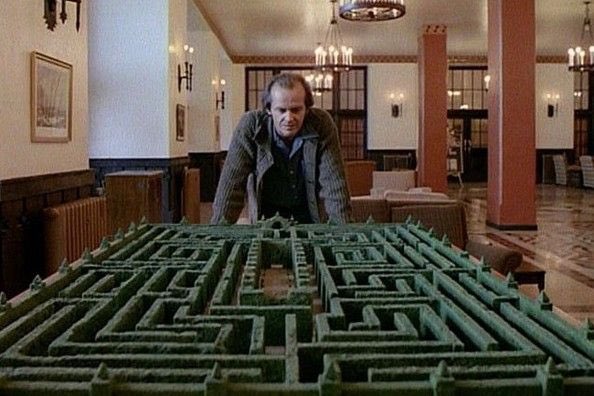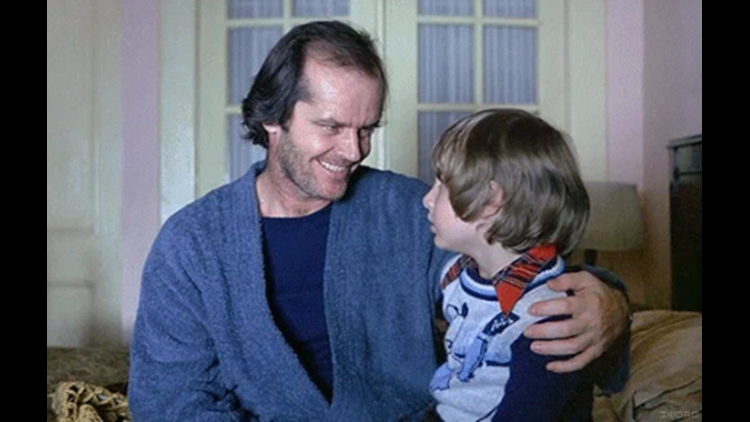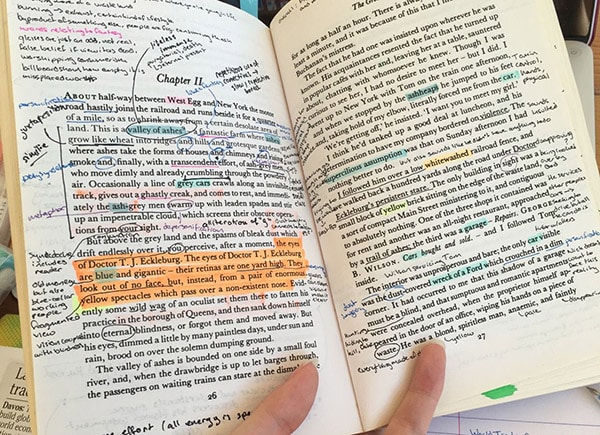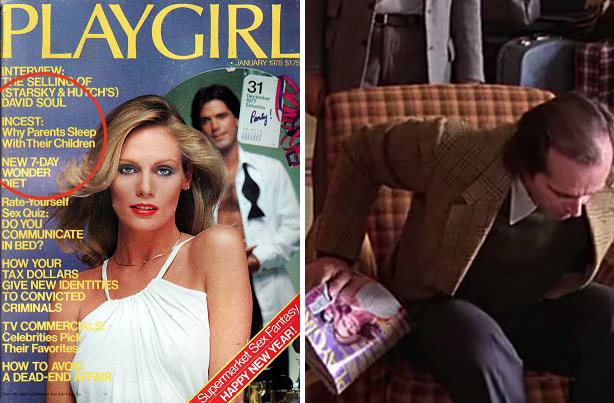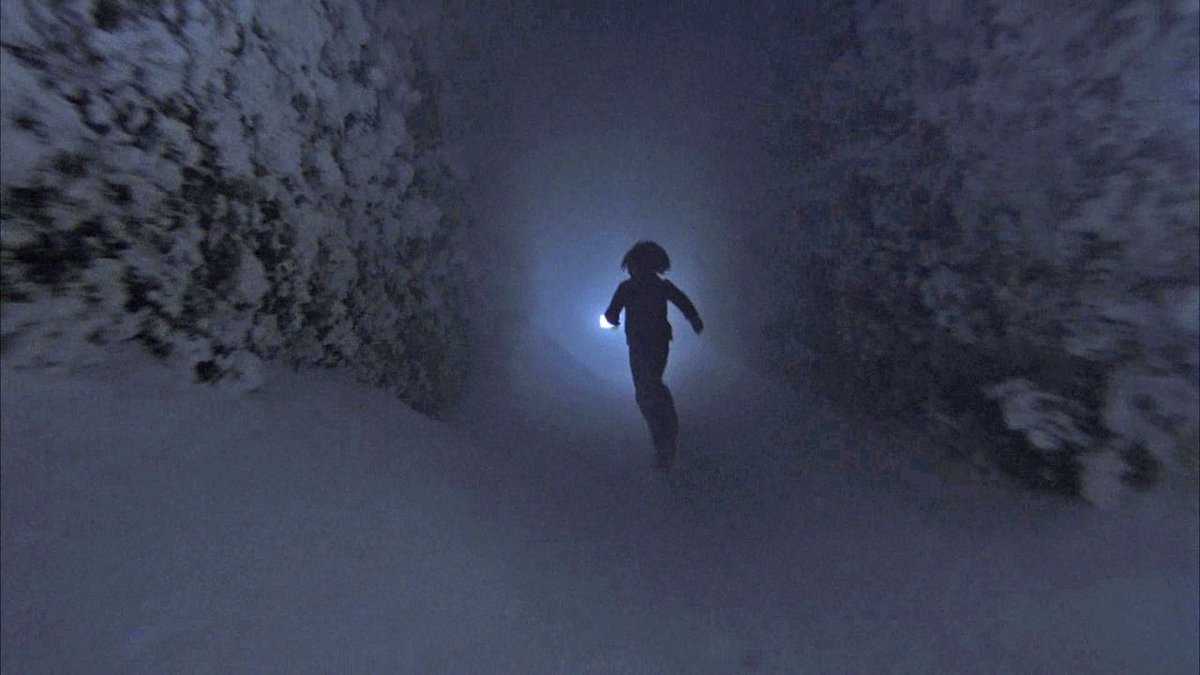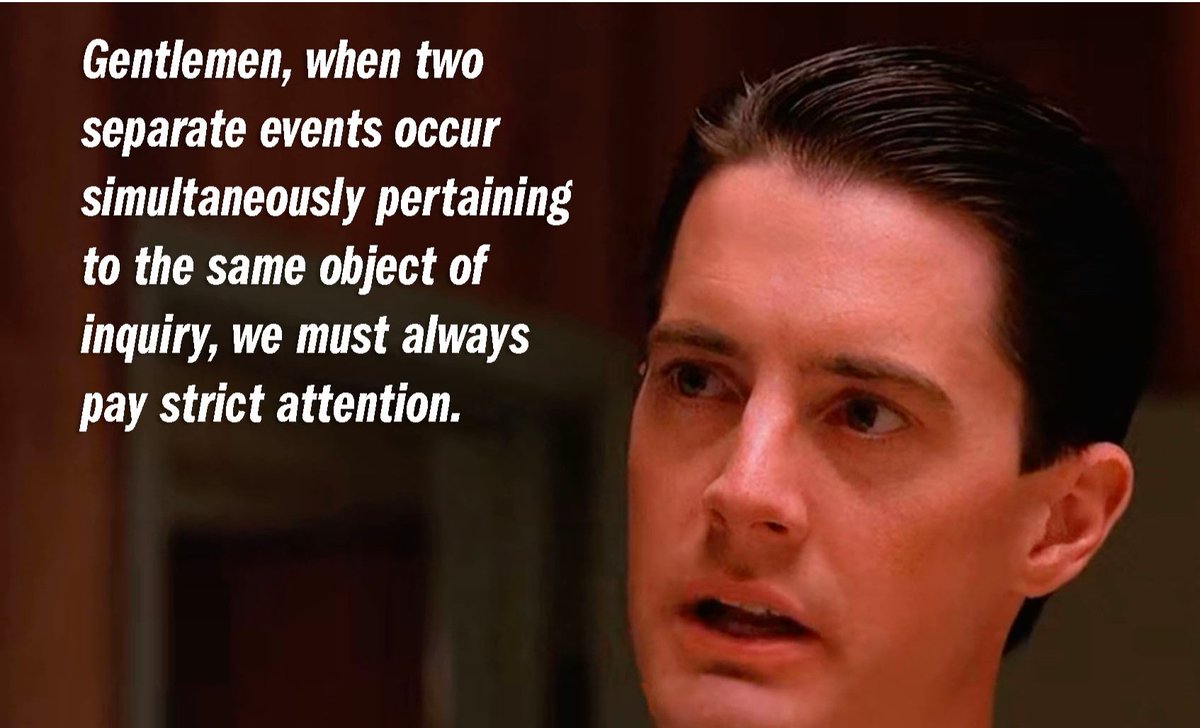Thinking about quitting my job so I can focus on my true love: a treatise on The Shining. There are three movies: one from Jack’s perspective, one from Wendy’s, and one from Danny’s. (Thread)
Danny’s experience is the closest to ours as viewers, experiencing the trauma of existing in between two unreliable narrators.
The inherent challenge (and genius) of the film is twofold: on one hand, we are invited to navigate a maze that changes while we are inside of it. This mirrors the experience the characters have, but they are unprepared for the inconsistency.
On the other hand, we know that a singular, trustworthy version of ‘what happens’ isn’t possible, making every other theory impossible, too. Even the building isn’t trustworthy.
The impossibility of trustworthy versions of the story extends to the audience, too. All of the theories online and in print over the years suffer the same affliction, as viewers and critics we are part of the absurdity the Overlook contains.
At the same time, the impossibility of objective truth permits a certain freedom. For Wendy, her version is 'true', and the same goes for Jack, his version is 'true', too.
Haloran is a sort of anchor for Danny, and we can think of him in a similar way. Though, we must remember, our experience stands alone from the film's world(s).
Despite the common thinking of Kubrick's departure from the 'facts' of @StephenKing's novel, there are themes that inexorably tie the two in critical ways.
Constant readers know that King's multiverse provides a sort of anchor for his audience. For The Shining's film audience, the assumption might be that the Overlook is that anchor. We know that's not true, since it changes based on who is looking.
Danny can't be our anchor, because we're in the same situation he is: torn between the unreliable experiences of our elders.
His fear and anxiety are indeed exacerbated by abuse, but we're unable to discern the 'truth' of it. I'll add that some theories strengthen one possibility more than another.
There's no reason to argue that one parent's 'version' is more likely than the other, it's an impossible venture. I believe we can, however, think about how reliable they are based on WHEN they are experienced.
Some inconsistencies for the viewer indicate harmless subjectivity on the part of the subject, while others introduce dangerous illusions to the family, propelling the film's climax.
So, Haloran is the most reliable anchor between the multiverse existing inside the hotel. It's not perfect, but it's not meant to be. And the multiverse isn't perfectly consistent in King's novels, either.
We know that the family existed in different realities before they move to the hotel, and that might be the biggest mystery of all. Would the Torrance family eventually imploded had they not gone to the hotel? Would their varied perceptions caused the same trauma?
My inclination is to argue they wouldn't, that the hotel is, indeed, a sort of catalyst, and might even have its own perception of events that factor in to the collision of subjective experiences at the end of the film.
In other words, is the Overlook antagonizing the Torrance family? Like it did to the Gradys? We could agree that Jack and Wendy have their own subjective experiences of the truth within the hotel, but is there some external force that nudges them?
One other thing I’d like to mention is the potential for characters in King’s books to move between parallel realities. When watching the film, consider whether some inconsistencies might be a result of universe-hopping.
David Lynch does something similar, although his stories are more difficult to sort between 'fact' versus 'true'.
Lynch adds more layers of abstraction, but in many ways endears himself more to his audience, because he provides lots of clues. He doesn't want to tell us what things mean, he wants us to work the puzzle.
It's possible--likely, even--that there are multiple 'true' explanations for Twin Peaks, bc Lynch has something to say with his art, but he also wants us to have the experience of the journey. It's OK that our outcome might not match his intent.
The 'going in' to strange places is the creation of the film for Lynch. That's the art, not us viewing them. But for us, the 'going in' IS the viewing, and Lynch is positing that both journeys are necessary.
For a much better (and thorough) explanation of this Lynch stuff, I highly recommend @Twin_Perfect's YouTube channel, specifically the Twin Peaks 'Explained' videos. Yes, it's ironic that it says 'explained'.
Back to Shining, Kubrick deliberately plants clues--some more obvious than others--that make us question our own interpretation of what we've watched. We want to understand and we'll go to great lengths to make all the pieces fit.
The challenge--and also the message--is that the time we spend on the puzzle is part of the art, and that he wants us to enjoy that time.
It's not a race to see who 'gets it' the fastest. If it was, he could just film himself at the end of the credits telling us the deal. I don't know many people who would argue with this, but human nature really struggles with it.
Our brains are designed to make sense of the world, and particularly when it comes to art that we enjoy, we yearn to confirm our understanding. We're conditioned to believe that a big part of our value is related to our intuition and understanding of the world.
It's natural for us. We can't help it! It makes the message that much harder to live with. Let me be clear, it's not that we shouldn't try to understand it, it's that we should practice enjoying that journey.
The agony of being confused on the way to our own interpretation feels wild, but it's so much more interesting than almost anything else. Would you really want to know if there was one single answer?
STILL, there is one. There's absolutely a point of view and specific story Kubrick is telling in his film. Some 'facts' differ from King's novel, but in the most important ways, I think they align.
Real is good, interesting is better. Truth is subjective, and that's why art is magic. That doesn't mean Kubrick lacks a point of view, it just means that he's telling us that it's not as important to understand as our own.

 Read on Twitter
Read on Twitter